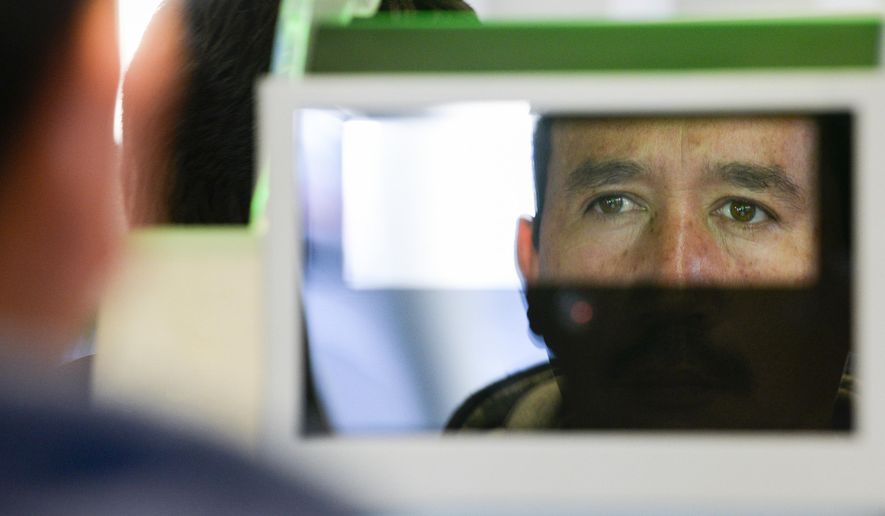The FBI’s use of facial recognition technology — including the bureau’s ability to access hundreds of millions of images — raises significant privacy and civil liberties concerns, a federal watchdog said in a report Wednesday.
Despite being operational since early 2015, the Government Accountability Office concluded in a 68-page review that the FBI failed to properly test the accuracy of a program that allows law enforcement agents around the country to scour databases containing millions of photographs taken from the likes of driver’s licenses, passports, mugshots and visa applications.
Over 30 million of those photos are contained in the FBI’s Next Generation Identification-Interstate Photo System, which federal agents and select state and local authorities can query to compare criminal suspects with people whose likenesses are already on record.
As revealed by the GAO report, however, a particular division of the FBI — the bureau’s Facial Analysis, Comparison and Evaluation Services — has gained access to Pentagon and State Department databases as well, the likes of which contain civil photos of people who may have never been suspected of criminal activity.
Combined, the total number of facial images available in all searchable repositories amounts to over 411 million and growing, the GAO found. Despite amassing nearly a half-billion photographs, however, the watchdog said the FBI failed to ensure its systems are as accurate as they could be.
“These photos may not be stored on FBI servers, but the FBI has, in effect, created a nationwide face recognition system that includes not just criminals, but tens of millions of law-abiding Americans who were never notified of this enrollment,” Alvaro Bedoya, executive director of the Georgetown Center on Privacy and Technology, told Vocativ.
“The nature and scope of this project is unprecedented,” he said.
Only limited testing has been conducted to gauge the system’s accuracy, however, prompting concerns regarding privacy protection and civil liberties by outside groups in addition to the government watchdog.
“The FBI has entered into agreements to search and access external databases — including millions of U.S. citizens’ drivers’ license and passport photos — but until FBI officials can assure themselves that the data they receive from external partners are reasonably accurate and reliable, it is unclear whether such agreements are beneficial to the FBI and do not unnecessarily include photos of innocent people as investigative leads,” the report’s authors wrote.
The Electronic Frontier Foundation, a digital rights group, called the findings shocking and said it would advocate for more government transparency.
Sen. Al Franken of Minnesota, the ranking Democrat on the Senate Judiciary subcommittee on privacy, technology and the law, said in a statement that the FBI’s reluctance to adequately audit the program before its rollout is “especially concerning.”
The GAO raised six recommendations with the Justice Department before releasing its report but said the department agreed with only one of them.
• Andrew Blake can be reached at ablake@washingtontimes.com.




Please read our comment policy before commenting.